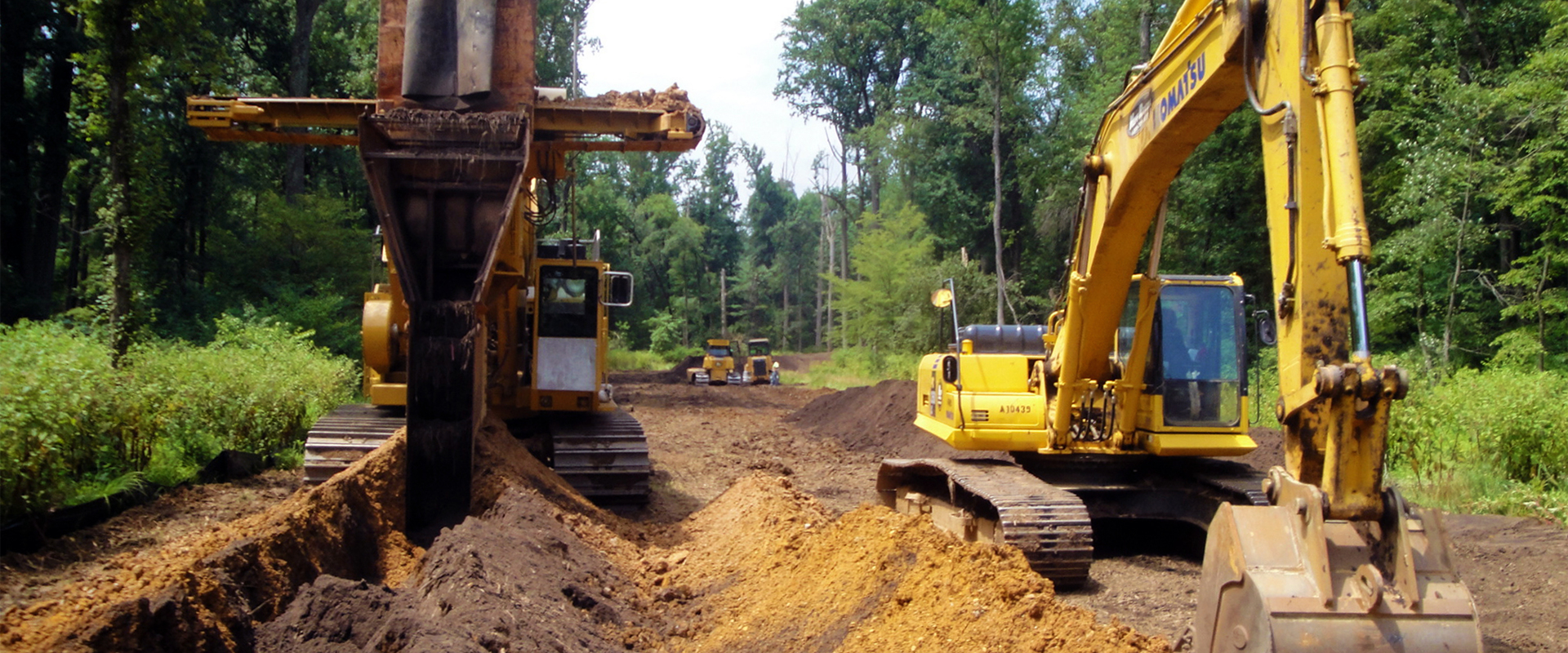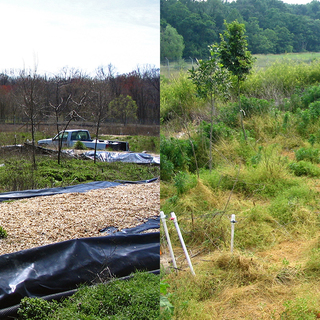
Beaverdam Road Landfill Permeable Reactive Barrier
The Beaverdam Road Landfill (BDRLF) site is another site we characterized for the U.S.
The Beaverdam Road Landfill (BDRLF) site is another site we characterized for the U.S. Department of Agriculture (USDA) Agricultural Research Service (ARS) at the Beltsville Agricultural Research Center (BARC) in Maryland.
We led a Remedial Investigation/Feasibility Study that included site investigation, development of a Site Screening Process, ecological risk assessment, human health risk assessment, and feasibility study to evaluate remedial options.
We completed soil, surface water, sediment, and groundwater sampling. Groundwater samples were collected with Geoprobe® direct push wells. The selected remedy was the installation of a permeable reactive barrier (PRB) to create the conditions necessary for the microbially mediated degradation of trichloroethene in groundwater.
PRBs are a developing remediation technology which employs an underground structure to host a bio-film membrane to capture and break down contaminants as they pass through the wall. Treated groundwater is passively discharged via natural groundwater flow.
We completed a comprehensive Remedial Design/Remedial Action Work Plan which was approved EPA Region III. We performed routine monitoring to evaluate PRB performance and achievement of applicable or relevant and appropriate requirements developed during the remedial investigation and feasibility study.

We conducted a Pilot Study of the College Park Landfill (CPLF), a 30-acre site operated as a municipal landfill from 1954 through 1978. Following closure, a cover was applied, but it was not closed in accordance with regulatory requirements. As landfills are known for their ability to mobilize hazardous substances into surrounding media, the CPLF was added to the U.S. Superfund (CERCLA) program for further evaluation.

A floating platform was constructed and moored at site in Semakau Landfill, Singapore. The floating platform is planned to be used for dumping incinerated ash at the Semakau landfill.